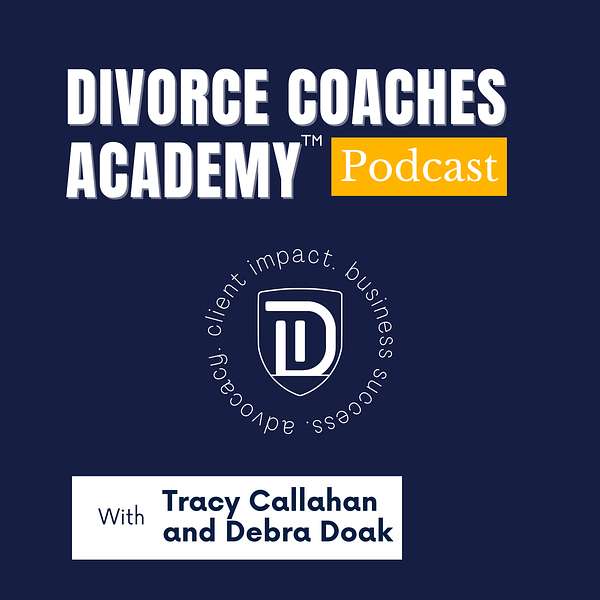
Divorce Coaches Academy
Divorce Coaches Academy podcast hosts Tracy Callahan and Debra Doak are on a mission to revolutionize the way families navigate divorce. We discuss topics to help professional divorce coaches succeed with clients and meet their business goals and we advocate (loudly sometimes) for the critical role certified divorce coaches play in the alternative dispute resolution process. Our goal is to create a community of divorce coaching professionals committed to reducing the financial and emotional impact of divorce on families.
Divorce Coaches Academy
Beyond AI: The Irreplaceable Value of Human Connection in Divorce
Send Us a Message (include your contact info if you'd like a reply)
The irreplaceable human element of divorce coaching remains vital in an increasingly AI-driven world, with experienced coaches providing emotional intelligence and authentic connection that technology cannot replicate. We explore why artificial intelligence tools can supplement but never substitute the nuanced support, personalized guidance, and trauma-informed approaches that human coaches offer during life's most challenging transitions.
• AI tools can help with administrative tasks but cannot read subtle emotional cues or provide genuine human connection
• Experienced coaches draw from personal and professional knowledge to offer nuanced advice tailored to individual values and situations
• "Compassionate boundaries" balance validation with accountability when emotions cloud judgment
• Real-time adaptation allows coaches to pivot instantly when clients face unexpected developments
• Trauma-informed approaches help coaches recognize signs of abuse that AI might miss
• The coaching relationship itself models healthy communication and boundary-setting for future relationships
• Technology works best as a supplement rather than a replacement for human coaching
Join us on July 23rd when Anne Wintemute from AmieeSays will join us to explore AI-driven tools for those in unhealthy relationships.
Learn more about DCA® or any of the classes or events mentioned in this episode at the links below:
Website: www.divorcecoachesacademy.com
Instagram: @divorcecoachesacademy
LinkedIn: divorce-coaches-academy
Email: DCA@divorcecoachesacademy.com